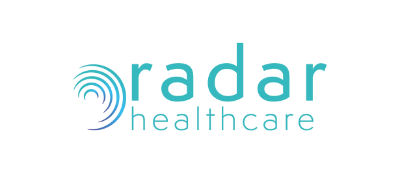HTN Digital ICS (Integrated Care Systems) Webinar
06 June 2023
Tags:
Babar Shafiq, our National Business Development Manager, spoke on a panel with HTN Digital ICS about how Integrated Care Systems (ICSs) like North West Surrey Integrated Care Services (NICS) can leverage machine learning and artificial intelligence (AI) to drive governance automation and integrate health and social care.
In this blog, we delve into Radar Healthcare’s intuitive system, emphasising the importance of collaborative reporting and data-driven decision-making.
The driver for change
To illustrate the need for change, Babar highlighted a challenge faced by commissioners, using the example of HIV care, where multiple commissioners historically work in silos, commissioning different parts of the pathway.
“HIV is a great example. They have different commissioners at every level, each commissioning different parts of the pathway for the same group of patients, and historically, in my experience, not always talking to one another. Imagine all those key stakeholders sitting at the same table, working as part of one system and being able to commission the entire pathway together, with all their experience and knowledge.”
Are you looking for a digital solution to help you make a difference?
Babar also highlighted Radar Healthcare’s commissioned research into incident reporting in secondary care, involving 100 ward nurses.
According to the research:
- 92% of nurses log or report incidents immediately.
- 64% want to improve their ward’s current reporting system.
- 83% want more incident report training.
- 40% believe their reports do not lead to better patient outcomes.
These findings emphasise the need to support better health outcomes, boost staff engagement in incident reporting, and exploring how suppliers like Radar Healthcare can help this culture shift by providing an effective incident management tool that seamlessly integrates with action plans and drives tangible improvements.
Download the incident reporting whitepaper
Radar Healthcare’s system consolidates all key business functions into one system, replacing the need for multiple systems like Excel spreadsheets, Word documents, paper records, and Teams meetings. Babar emphasised the accessibility and analytical capabilities of Radar Healthcare’s system, allowing for localised and staff-specific data analysis without the need for cumbersome communication methods:
- Data can be analysed and split by locality and staff member.
- Regional oversight provides comprehensive performance and risk observation without extensive manual efforts.
- The system offers detailed data granularity, an invaluable resource for each region and site location
Babar highlighted the advanced features of Radar Healthcare’s Analytic dashboard, like Pulse, a powerful AI tool that detects irregularities and potential unwarranted variations in data sets, offering a proactive approach to risk management. What’s truly reassuring is that the system’s continuous analysis and independent trend identification can detect anomalies that might go unnoticed by the human eye.
As Babar explains below:
"Having previously worked with Radar Healthcare in a consulting capacity, I was aware of their capabilities for helping organisations such as Remedy Healthcare Solutions, and as the new Director of Governance, I saw an opportunity to introduce a solution that would support our commitment to patient safety and quality improvement."
Software in action
In a system demonstration, Babar showed users how to access their entire caseload on a single screen as well as their assigned tasks, including action plans, audits, events, along with their corresponding deadlines, progress, and priority levels.
Using sepsis as an example, Babar illustrated the process of reporting the incident at the service level to representation across an acute trust in less than 10 minutes. The system supported seamless notifications, workflow management, action plans, document libraries, audits, and risk registers, streamlining the entire incident management process.
Babar noted the system’s intuitive nature, adding that when an incident is reported, “it knows there needs to be some consequential actions from that event.” This is beneficial because it no longer relies on staff to determine the next steps. The system makes it very clear and mandates the next steps. At this point, you could attach documents, create an action plan, link to another event, or assign the case to someone else.”
Radar Healthcare’s system empowers Integrated Care Systems by providing a unified platform for governance oversight. By fostering collaboration, enabling data-driven decision-making, and streamlining incident management, you can improve health outcomes and promote a culture of continuous improvement.
Book a free demo with one of our experts today to learn more about how Radar Healthcare can support your ICS in achieving effective governance oversight.







